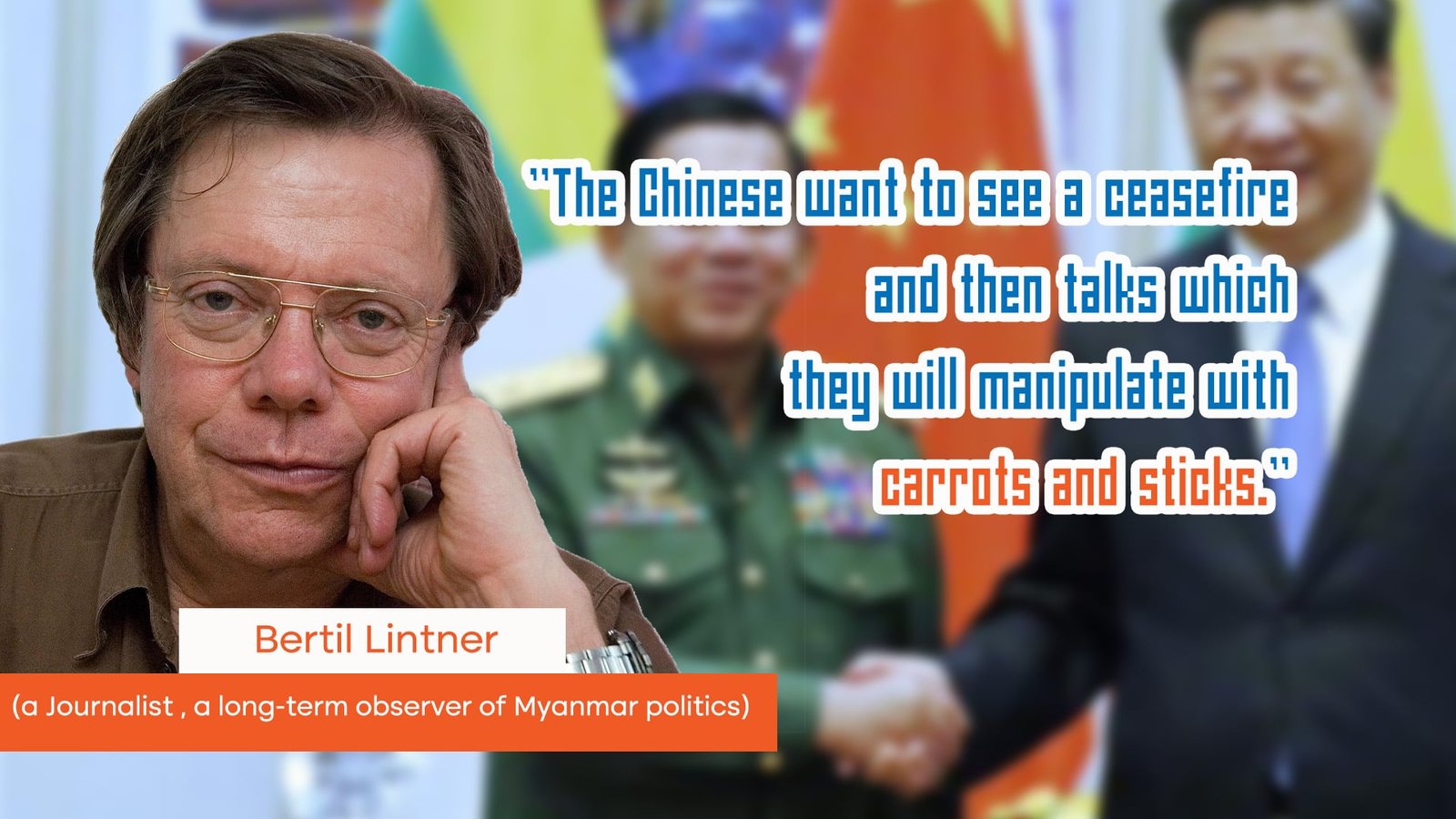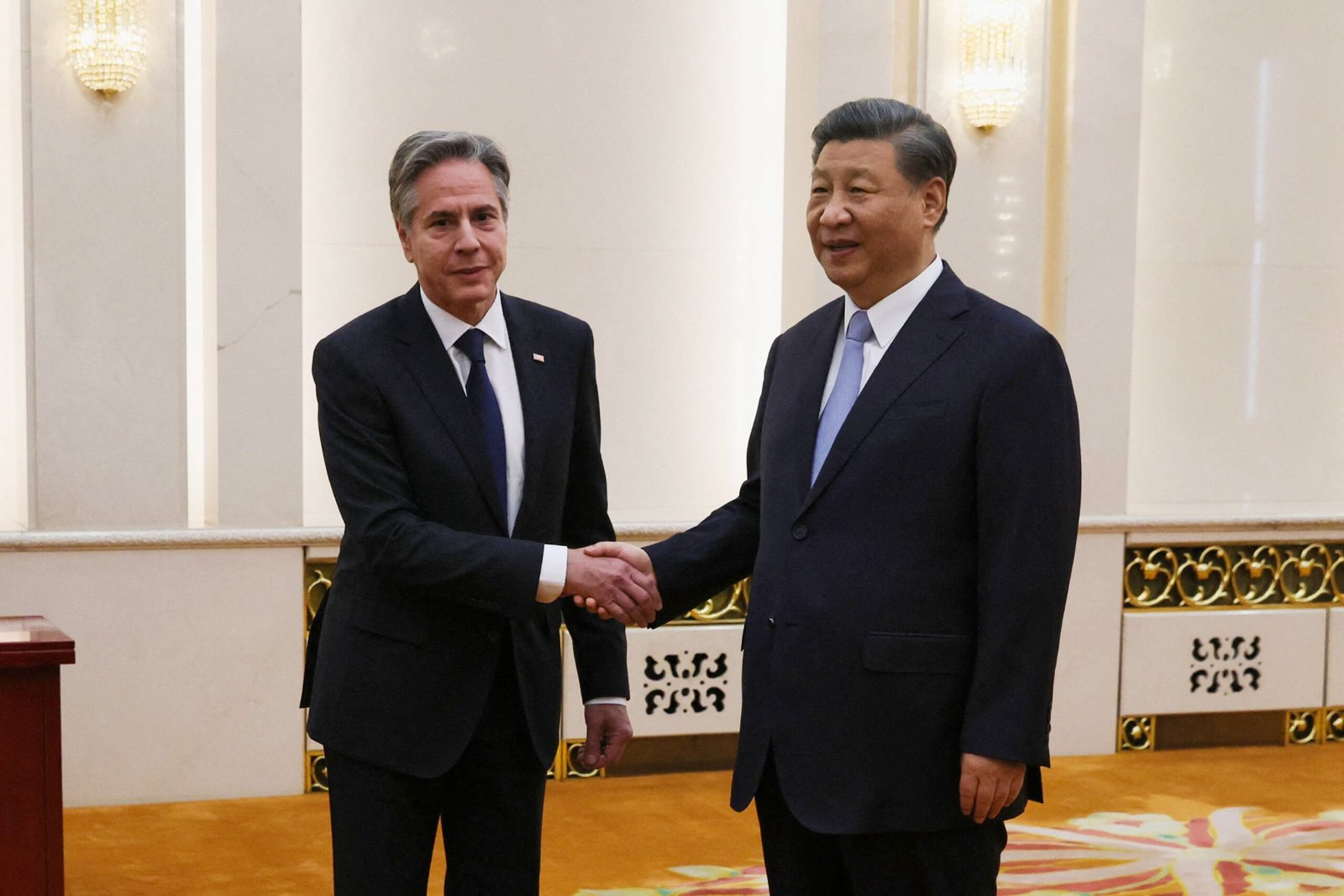
December 5
“Recent developments show, once again, that China is the only outside power with the capacity, the means and the motivation to interfere decisively in Myanmar’s internal conflicts. No other player has the same degree of contacts with the Myanmar military as well as the resistance forces.”
Regarding the current China-Myanmar situation, DNA reached out to Swedish journalist Bertil Lintner, a long-time observer of Myanmar politics who has extensively studied the issue and authored several books on the subject.
Q : According to the State Administration Council, a working committee led by the Deputy Minister of Home Affairs has been established to jointly build a China-Myanmar Joint Venture Security Company. What type of cooperation could this indicate between Myanmar and China?
A : It’s still not quite clear what that agreement means, and there are already private Chinese security companies operating in BGF-controlled areas such as Shwe Kokko. Will this arrangement mean that Myanmar and Chinese security personnel will work together? That would entail a language problem. It seems, but I can’t say for sure, that it means that Chinese security companies (with some token Myanmar participation) will be able to work in SAC-controlled areas as well. I guess the Chinese are worried about the pipeline, hydel projects in Shan State, and other Chinese investments in Myanmar.
Q : Could members of the People’s Liberation Army (PLA) be present in Myanmar under the guise of Chinese security companies? Or could we see scenarios similar to Chinese police patrolling the Mekong River basin, as in places like Kyaukpyu? Could Chinese security companies provide security for Chinese projects, as they do in South Africa? Please comment.
A : Those Chinese security companies, like American Blackwater, employ many ex-servicemen. They have experience, know how to handle guns, and what to do in case of an emergency. The difference between US Blackwater and Chinese security companies is that the former is a private undertaking and nothing is private when it comes to security in China.
Q : What kind of challenges could the military council face, given that the current 2008 constitution does not allow foreign troops to be stationed in Myanmar? How might this affect the current political and military situation?
A : The way around that is to claim that the Chinese security personnel are in Myanmar as private security contractors, not as regular PLA. But that will be tricky because there is an official agreement between SAC and Chinese authorities, so it isn’t a private thing.
Q : What is the likely response from Western countries, including the United States?
A : Nothing much, I’m afraid. The Americans are deeply engaged in the conflicts in Ukraine and the Middle East, and I deem it unlikely that they want to get involved in yet another conflict. And when Trump takes over in January, anything Southeast Asian will be on the backburner. On the other hand, the Americans are building a new, massive consulate in Chiang Mai, and that means China-watching.
Q : According to Mizzima, the military council formed a working committee on October 22 to sign the memorandum of understanding on the establishment of the company proposed by China. The working committee was officially established on November 8. It is believed that preparations for the establishment of the company were underway even before the military leader’s visit. How long can it be assumed that this process has been ongoing? Can it be inferred that the visit by Chinese Minister of Public Security Wang Xiaohong to Home Affairs Minister Lt. Gen. Yar Pyae in April this year played a role in this agreement?
A : Hard to say, but I don’t think it’s something that came up unexpectedly during MAH’s visit to China. It seems likely that talks about it began months before that visit.
Q : Is the establishment of the joint security company related to the attack by revolutionary forces on Chinese infrastructure, such as the natural gas pipeline station in Taungtha or the Tagaung Nickel Plant?
A : Could be. The Chinese are apparently worried about what they term “the security situation” inside Myanmar, but that means threats and potential threats to Chinese projects such as the pipeline, mines where China has an interest, and hydel power.
Q : During the recent visit of the military leader to China, he met with officials, including the Chinese Prime Minister, and held discussions with Chinese businessmen. Several economic agreements were also signed. The military council claimed that the visit was a diplomatic success, with some observers suggesting that the military council displayed greater diplomatic skill than the National Unity Government. Can it be said that China has taken the side of the military council? What impact might this have on the ongoing revolution?
A : NUG hasn’t accomplished more than making the outside world aware of the situation in Myanmar, I can’t see it as a player when it comes to relations between SAC and China. And China will continue to play both sides – the armed resistance forces and SAC – but tilting towards SAC. China is not interested in a regime change in Myanmar; the Chinese want to see a ceasefire and then talks which they will manipulate with carrots and sticks.
Q : How would you describe the current relationship between China, the military council, and the National Unity Government?
A : Relations between SAC and China are close and reasonably cordial (I believe the Myanmar military doesn’t trust the Chinese either, but they have no choice, they have to work together with the Chinese). I can’t see any relationship, or interaction, involving the Chinese and NUG.
Q : If there is anything you would like to add, please feel free to share.
A : Recent developments show, once again, that China is the only outside power with the capacity, the means and the motivation to interfere decisively in Myanmar’s internal conflicts. No other player has the same degree of contacts with the Myanmar military as well as the resistance forces.



